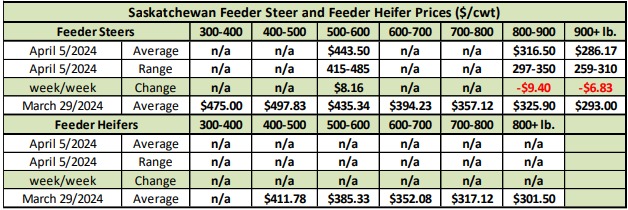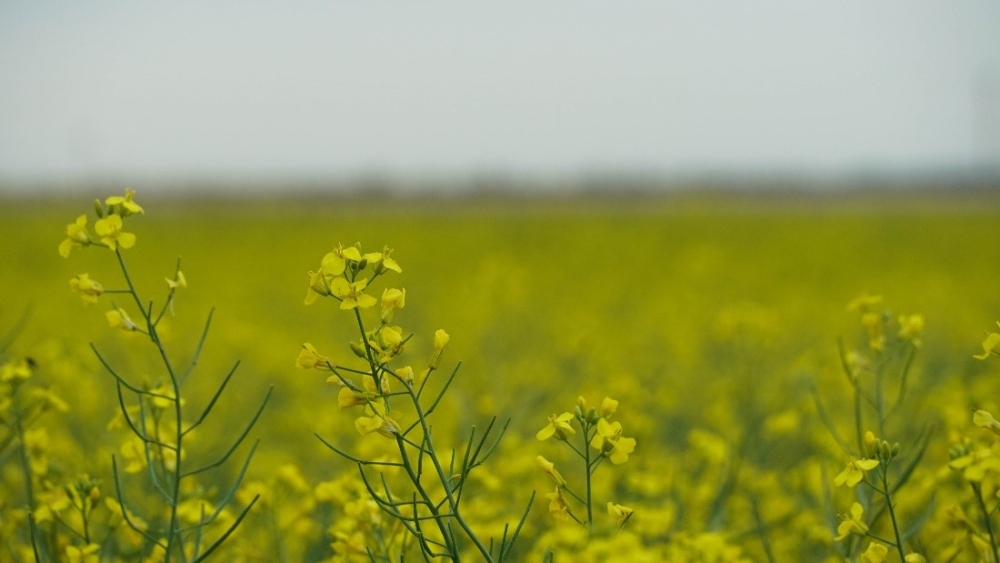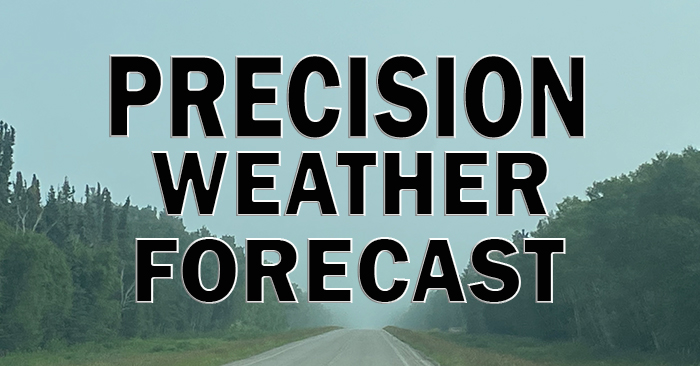There was very limited information on feeder steer and heifer prices in Saskatchewan due to low volume.
There were no heifer prices from the latest Cattle Market Update for the week ending April 5th but there were prices for three steer weight categories. The 500-600 lb weight category reported a week-over-week increase of $8.16 to $443.50 per cwt, establishing a new all-time high price. The 800-900 lb declined by $9.40 to average $316.50 per cwt and the 900+ lb categories also decreased $6.83 to an average price of $286.17 per cwt.

Last week there were just 3,981 head of cattle marketed in the province, well below the 14,088 head of cattle marketed the previous week, and below the 9,165 head marketed the same time last year.
Prices for market-ready cattle in Alberta were higher compared to the previous week. D2 slaughter cows increased $6.32 per cwt to average $171.68 per cwt, also establishing a new all-time high price. The average price of D3 slaughter cows was up $6.39 per cwt to average $154.06 per cwt.
The Canfax price for Alberta fed steers reported on April 5 was $244.45 per cwt., up $5.90 per cwt compared to the previous week and established new price highs for 2024; and less than 2 per cent from all-time high fed steer prices established in 2023.
Provincial Livestock Economist Brad Marceniuk says continued concern over new cases of avian flu in US dairy cows in several states negatively affected the cattle market down south.
U.S. feeder cattle futures prices were significantly lower over the week with the April 2024 contract down US$9.425 per cwt and the May 2024 contract down US10.525 per cwt, or 4 per cent.
He says the avian flu issue has had some affect on the cattle market in Canada. “While some feeder weight categories were lower we still did see some higher, so we could expect some market volatility and mixed markets in the short-term with the cases of avian influenza in the U.S. cattle herds,” said Marceniuk.
Overall, however, Marceniuk believes the outlook looks positive for beef markets, citing expectations of a continued decline in US beef production in 2024 and increased consumer demand for beef in the summer.








